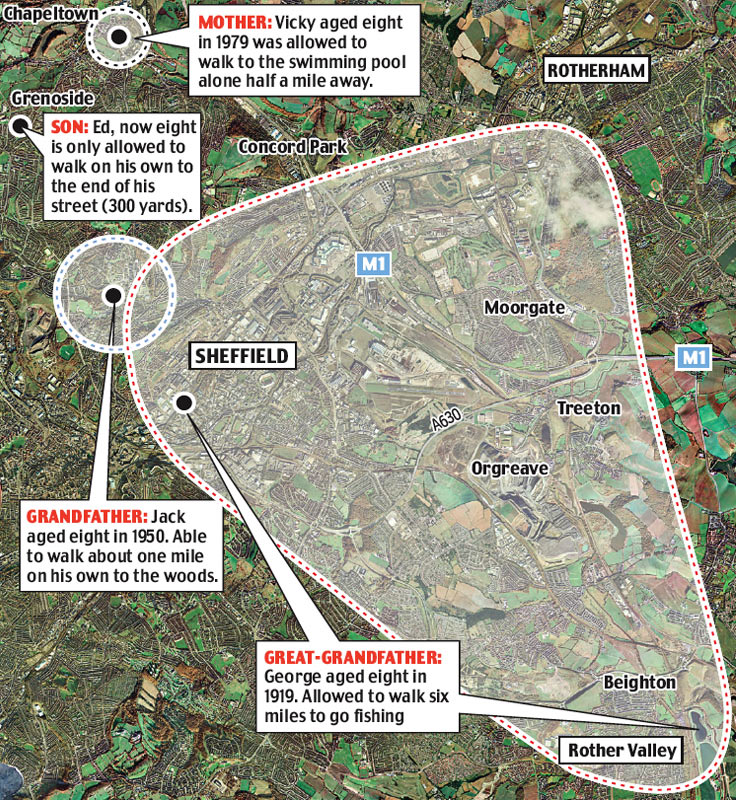Rick McGinnis on the ways parents are “encouraged” to become helicopter parents, for fear of social disapproval or intervention by local government child protective services:
Seven years ago, a New York City columnist named Lenore Skenazy wrote a column about letting her nine-year-old son Izzy take public transit home by himself. Within days, she was at the centre of a media furore that saw Lenore dubbed “World’s Worst Mom,” and found herself made a standard bearer for whatever pushback is happening against an increasingly supervised and circumscribed style of parenting that Skenazy certainly wasn’t the first parent to notice.
Making lemonade out of lemons, Skenazy turned the whole incident into a blog called Free-Range Kids, which led to a book with the same title, and later a TLC TV series that brazenly went to air as World’s Worst Mom. (It was called Bubble Wrap Kids when it aired on Slice in Canada. Take from that what you will.)
I applaud Skenazy for her bravery, having noticed long ago that the childhood my own kids were experiencing was a far cry from the largely unsupervised version I lived through in the urban ‘70s, which was by comparison of meagre freedom and liberty compared to that lived by my own parents, or by almost anyone who grew up in the country.
On the old blog, I posted this graphic which shows the rapid decline in children’s freedom of movement through the last few generations. This is in England, but the same clearly applies in Canada and the US:

Defenders of this overprotective parenting insist that they’re doing it out of love for their kids; that the world has changed; that it’s better to be safe than sorry. Cautious rebels against the helicopter parenting status quo admit that they’d love to be bolder, but they’ve read stories on the internet about child protective services being called on parents who let their kids play outside alone or walk home by themselves. What side you fall on in the debate depends on whether you’re more scared of society or your government.
[…]
The most difficult challenge it proposes is that parents need to exercise real diligence about what their children might read or hear in what passes for education these days, while asking them to relax their fears and anxieties about what kids will see or experience on their own. He also admits that even the once-great but ever more obscure authors of the canon can’t be accepted unquestioningly, noting that while Dickens’ novels are still as compelling as they ever were for the child patient enough to tackle them, he was also the author of an apparently dismal Child’s History of England that managed to be both vigorously written and factually abysmal, made so by Dickens’ urge to be that most contemporary of things: politically relevant.
Esolen writes at a gallop, weaving anecdotes from his own childhood and career as an educator without stumbling to cite Department of Education statistics or Findings from Studies and Think Tanks. Genial but polemical, it’s the sort of book that goes over best if you already share the bulk of its assumptions about education, culture, and politics, but it’s also rife with a nostalgia for boys running through empty woodlots that’s straight out of Rockwell and Mark Twain.
What’s needed now is a way to acknowledge that technology and the internet, reduced leisure time, and a more invasive social bureaucracy are as real now as stickball, parades, church-going, and intergenerational households were then. If someone can see their way through the thicket of imperatives and distractions, digital or otherwise, and come up with a few suggestions for concerned parents that aren’t basically Luddite, this unwillingly overprotective parent for one would be happy to hear them.
H/T to Kathy Shaidle for the link.



